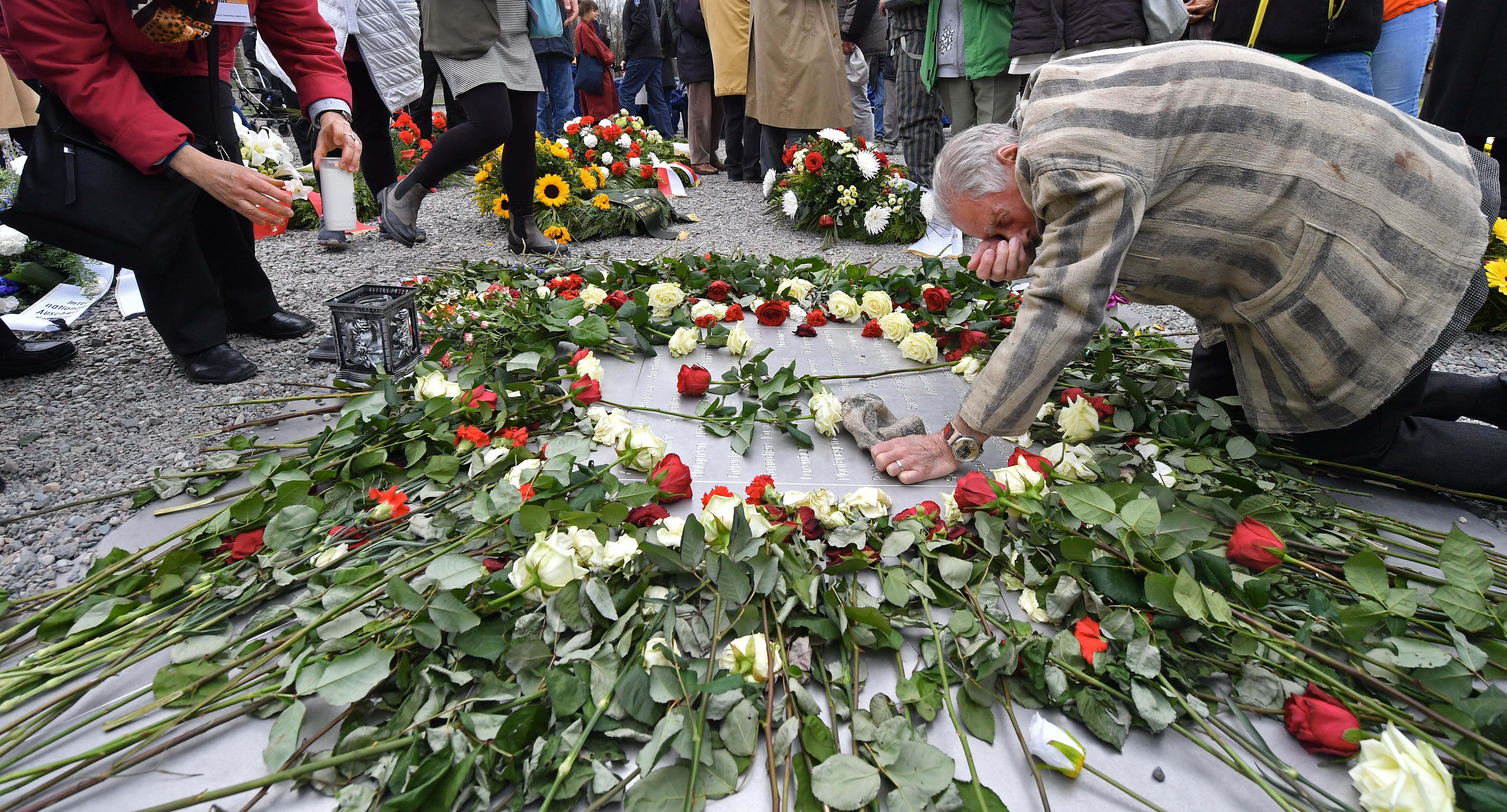
It was on this date in 1945 that Buchenwald, the Nazi concentration camp, was liberated by soldiers from the 6th Armored Division of the Third Army.
The camp’s survivors are few now, and over the weekend, they marked that fact in a ceremony “to symbolically pass on responsibility for taking care of the site and protecting the memory of the dead to the younger generation…”
Soon, the story will only be told second-hand or with the recordings made by people who felt the responsibility to keep the stories alive.
Edward R. Murrow was faced with the task of telling the story of Buchenwald with no tape recorded audio, no fancy production, just words.
“I arrived at the conclusion that all that was mortal of more than 500 men and boys lay there in two neat piles,” he said, describing the scene.” There was a German trailer, which must have contained another 50, but it wasn’t possible to count them. The clothing was piled in a heap against the wall. It appeared that most of the men and boys had died of starvation; they had not been executed.”
“I reported what I saw and heard, but only part of it. For most of it, I have no words,” he said.
At the conclusion of his broadcast, Murrow said, “If I have offended you by this rather mild account of Buchenwald, I’m not in the least sorry.”
